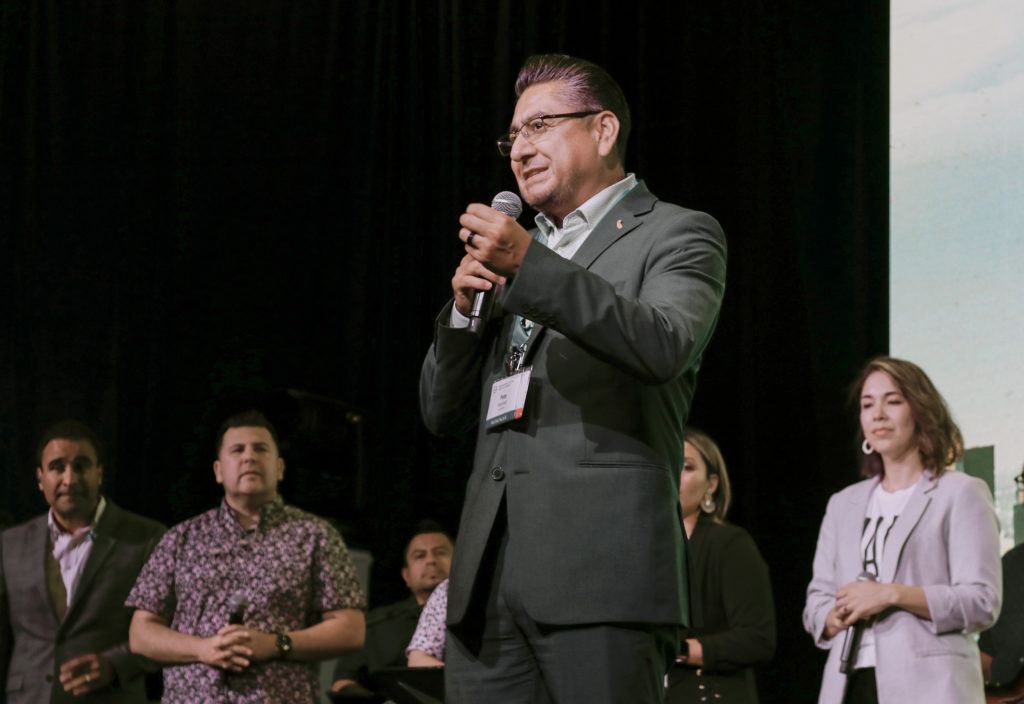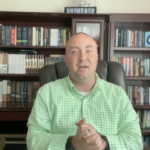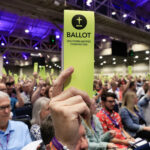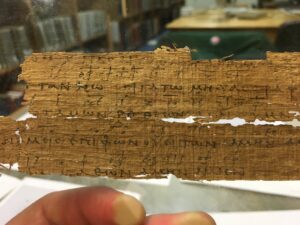
NASHVILLE (BP) – Hispanic Southern Baptists agree that the issue of female pastors is complex for Spanish-speaking congregations. They differ on whether amending the SBC Constitution is the way to bring unity and clarity.
California Southern Baptist Convention Executive Director Pete Ramirez highlighted the issue on the SBC’s Spanish podcast “Vida SBC.” In a July 17 episode, he asked Southern Baptists to consider the unintended consequences for Spanish churches of a proposed SBC constitutional amendment stating that cooperating churches must affirm, appoint or employ “only men as any kind of pastor.”
“What worries me is that we make decisions without thinking about the consequences for ethnic churches,” Ramirez said in Spanish. “There are many ethnic churches that, for translation reasons, use the title of pastor for a person. But it’s a matter of translation. It’s not that the person is ordained. It’s not that the person has a [ministry] license.
“And now we are, as a convention, putting ourselves in the business of churches” and saying, “If you don’t change this, you can’t be part of us,” Ramirez said. This “is a radical change as Southern Baptists that I think we could regret long-term as we fulfill the Great Commission.”
Ramirez was referencing an amendment to the SBC Constitution proposed in 2022 and given the first of two required affirmations by SBC messengers in New Orleans this year. If affirmed again at the 2024 SBC Annual Meeting in Indianapolis, it would become part of the Convention’s Constitution.
Ramirez explained in an interview with Baptist Press that he agrees with the theology of the amendment but fears some Southern Baptists may not understand a common usage of the Spanish word pastora – the feminine version of the word “pastor.” Often, pastora is used of the pastor’s wife in a Hispanic church, much like the pastor’s wife may be referred to as the “first lady” in an African American church. It’s the word “pastor,” but it is not used to signify the role synonymous with elder and bishop.
“I pastored for 17 years in California,” Ramirez said of his bilingual pastorates. “People would always try to say that my wife was a pastora, which is the female way of saying pastor. They would use this title for her even though she is not ordained, she’s not licensed, she has not once preached from any pulpit.”
Ramirez’s wife would correct those who misused the term pastor, “but in many of our Southern Baptist Hispanic churches that’s not clarified,” he said, estimating 3-4 percent of the SBC’s 3,400 Hispanic congregations use pastora of the pastor’s wife.
He’s not opposed to the constitutional amendment but wants clarification and instruction for churches rather than merely policies and the disfellowshipping of congregations.
“It’s great that we have a couple years before we actually make this a mandate for our convention,” Ramirez said, “and that we can have the conversations between this year and next year and try to figure out how it works best for our whole family.”
Juan Sanchez agrees that clarification is needed. But he thinks the amendment is a good step toward clarity for Hispanic churches. Sanchez has preached in Spanish across Latin America, taught Spanish courses at Southwestern Baptist Theological Seminary and helped Spanish-speaking churches grapple with the issue of female pastors. At this year’s SBC Annual Meeting, he offered an amendment to the constitutional change that established its final language.
“I don’t foresee this amendment being used to go after churches,” said Sanchez, pastor of High Pointe Baptist Church in Austin, Texas. “My intention is to clarify what we say we actually believe. It’s somewhat surprising to me that the amendment just rearticulated the Baptist Faith and Message and somehow that’s a real problem” for some Southern Baptists.
Linguistic confusion may be present among Hispanic Baptists, Sanchez said, but there also seems to be theological confusion. Pentecostalism’s heavy influence among the Hispanic community has led some Hispanic Baptists to carry over Pentecostalism’s affirmation of female pastors.
In Medellin, Colombia, several years ago, Sanchez worked with a group of churches transitioning away from Pentecostalism. “One of the issues they had to face was what the Scriptures actually taught because in one of the churches there was a husband-and-wife pastor” team, he said. A “challenge” for that association of churches was “working through” the issue of female pastors in a biblical and compassionate way.
Southern Baptists must be understanding toward believers of diverse cultural backgrounds, Sanchez said. But diversity cannot come at the expense of orthodoxy.
“We want multiethnic churches,” Sanchez said. “Is the solution to say, ‘Let’s just get a diverse group of pastors … We’ll find Hispanic pastors, African American pastors, pastors from India and then just forget about qualifications so long as we have diversity’? I don’t think anyone wants to do that.”
Southern Baptists need to determine “what we are cooperating for,” he said.
Ramirez and Sanchez are both right, says Eloy Rodriguez, president of the National Hispanic Baptist Network. Hispanic churches do tend to use the word pastora without assigning it the same theological meaning as pastor, and Pentecostal and Charismatic influences can lead Hispanic evangelicals to embrace female pastors.
However, nearly all Hispanic Southern Baptists affirm complementary roles for men and women in the church and home, Rodriguez said. They also want to cooperate to advance the Great Commission.
“We just need to concentrate on the main thing: the Gospel,” said Rodriguez, pastor of the Spanish campus of Idlewild Baptist Church in Lutz, Fla. “This amendment has to be well written to be careful that it does not divide us.”


















